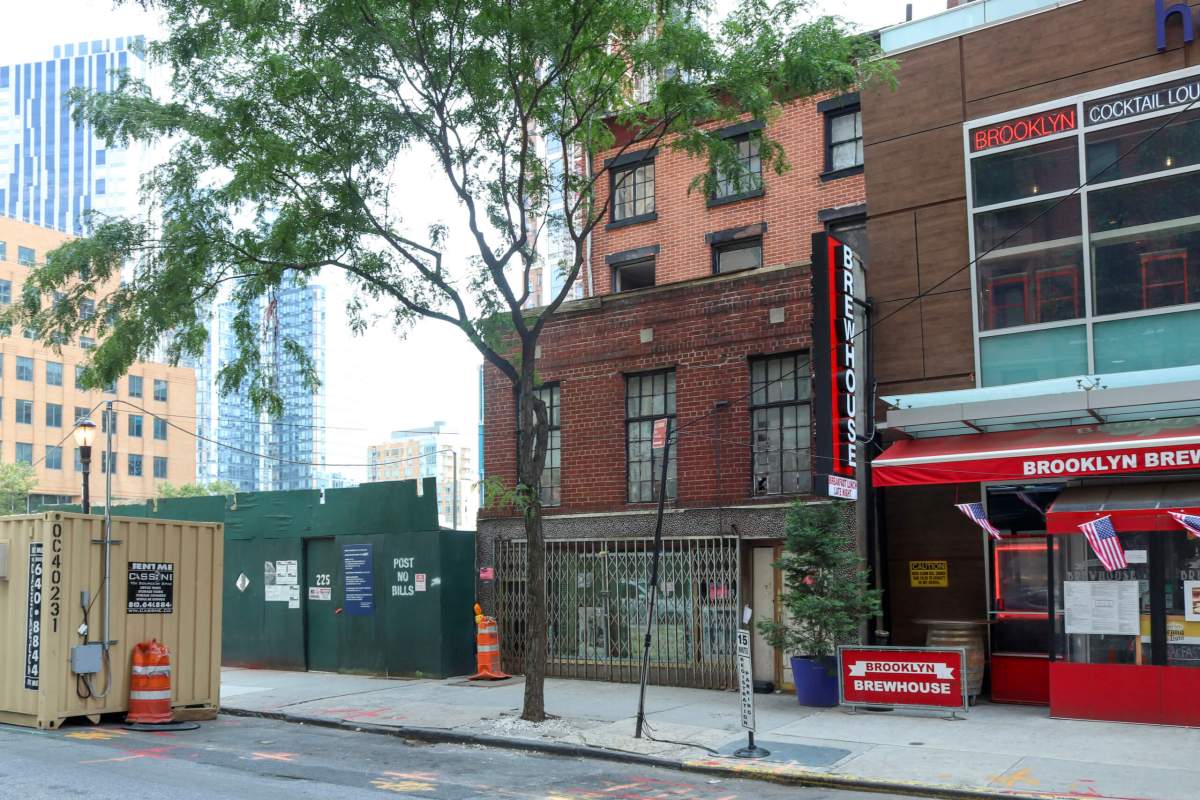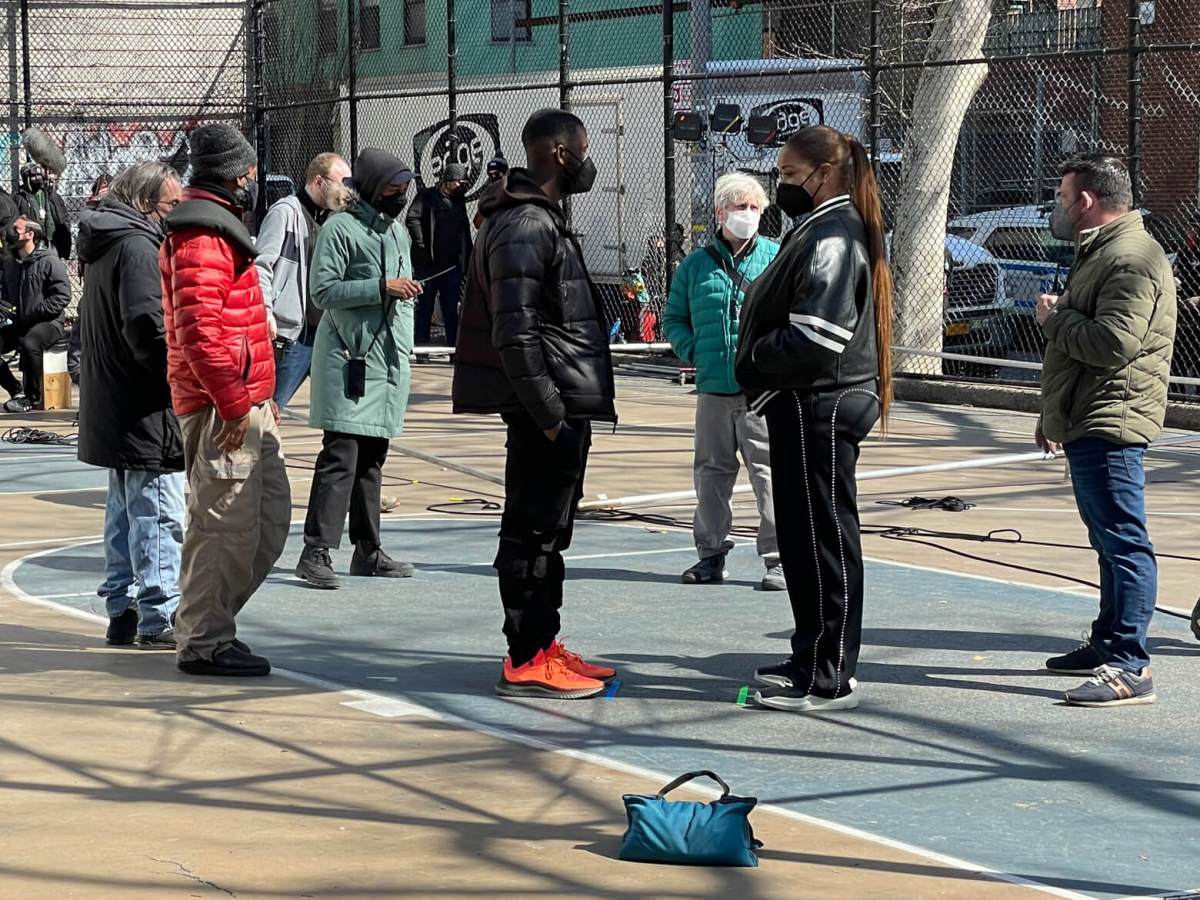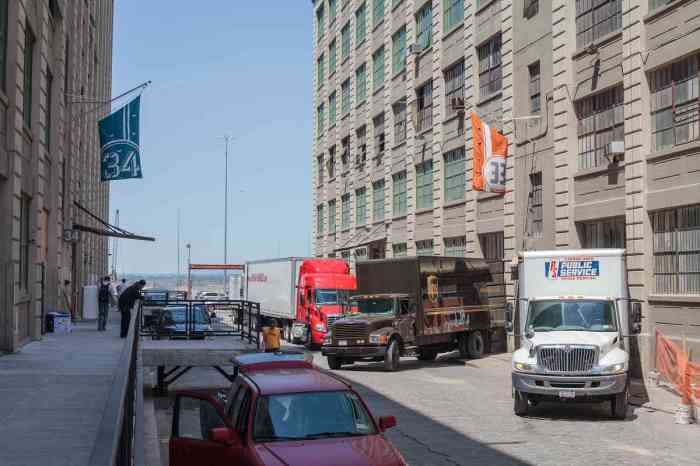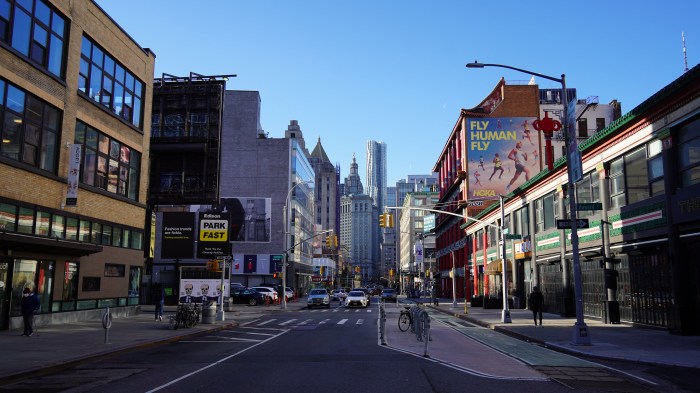The recently-landmarked abolitionist home at 227 Duffield St. in Downtown Brooklyn has been sold to the city, which comes after the property’s historical designation caused the home’s value to “plummet,” according to a lawyer for the developer.
“After much wrangling and consideration and considering that the value of the property automatically plummeted after landmarking, we had no choice but to sell the property,” said Garfield Heslop, an attorney for the property’s owner Samiel Hasanab, told Brooklyn Paper.
The city’s Department of Citywide Administrative Services, which oversees acquisition of private property, closed the sale of the building for $3.2 million Wednesday, according to agency spokesman Nick Benson.
The DCAS rep referred questions about the future of the building to Mayor Bill de Blasio’s, but a request for comment sent to the City Hall press office was not immediately returned — although both Hizzoner and the city’s First Lady had previously expressed their desire to see the property preserved as a memorial to the abolitionist movement.
The Landmarks Preservation Commission on Feb. 2 voted to give landmark status to the unassuming three-story row-house between Willoughby and Fulton streets, where prominent abolitionists Harriet and Thomas Truesdell lived during the 19th century, marking a long-awaited victory for local history buffs and activists alike.
Hasanab had planned to erect a 13-story tower with apartments along with a museum dedicated to Black history in its place, and even filed demolition permits in 2019.
The preservationist panel’s decision last month means that any alteration, reconstruction, demolition, or new construction affecting the structure will have to be approved by the Commission first, and Heslop said at a hearing last summer that those restrictions would financially “decimate” his client, who had already poured $3 million into the building.
The developer, under the moniker 227 Duffield Street Corp., bought the building piecemeal from different owners for a total of $588,000 between 2015 and 2017 — a steal in Downtown Brooklyn where property can trade in the millions.
Hasanab’s purchases followed more than a decade of tangled ownership between family members of the late activist resident Joy Chatel and investors.
The city’s quasi-public Economic Development Corporation also almost razed the building via eminent domain in 2007 while looking to make way for Willoughby Square Park as part of the major 2004 Downtown Brooklyn upzoning, but officials backed off after a lawsuit by Chatel and other activists.
The city also co-named that stretch of Duffield Street “Abolitionist Place” in 2007 and advocates have lobbied the city to rename the years-in-the-works Willoughby Square Park “Abolitionist Place Park,” which is slated to go right next to the landmarked building.
Heslop said he didn’t know what the city’s plans were for 227 Duffield, but urged officials to honor its rich history, which includes possibly having been a stop for escaped slaves on the Underground Railroad, according to local lore.
“We have no idea what the city intends to do with the property but we encourage the city to use the property to honor the legacy and tradition of the property, especially given its landmark status,” Heslop said. “It’s up to the city now to honor the heritage and do what they were trying to compel us to do.”























